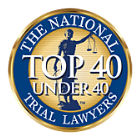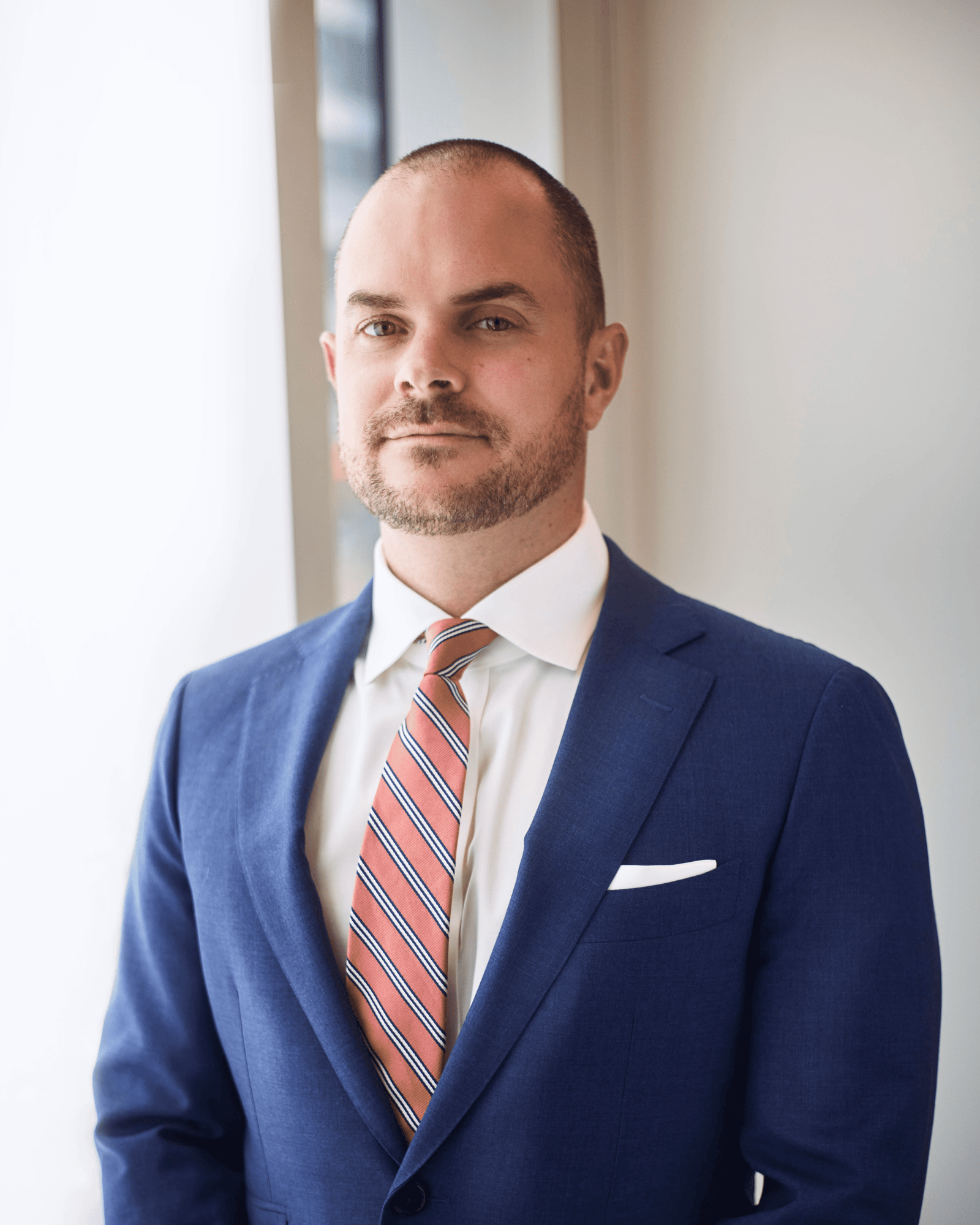5,000+
2,000+
5 Star
Parsonage-Turner Syndrome from a Vaccine
Fighting for Vaccine Injury Victims – Get the Compensation You Deserve
Severe shoulder pain and muscle weakness after vaccination may be signs of a serious nerve injury—one that qualifies for legal compensation. Parsonage-Turner Syndrome (PTS), also called acute brachial neuritis, is a rare disease that causes sudden, severe shoulder pain followed by rapid muscle weakness, loss of motion, and sometimes partial paralysis. It affects the brachial plexus—a network of peripheral nerves that control the shoulder, upper arm, and parts of the hand. In the early acute phase, patients presenting with significant shoulder pain, burning, or electric-shock sensations are often misdiagnosed with muscle strain or joint damage. But PTS is a neurological disorder that needs specific testing, including nerve conduction studies, magnetic resonance imaging, and careful physical examination.
In some cases, this condition appears shortly after vaccine administration—especially following an influenza vaccination, COVID-19 vaccination, or even a routine childhood immunization. These are called Parsonage-Turner Syndrome vaccine injuries, and they may qualify for help through the Vaccine Injury Compensation Program (VICP). Though only a few cases are reported each year, strong patterns have emerged in connection with the first dose or second dose of viral vaccines. Symptom onset may occur within hours or days, and clear medical documentation is the key to building a claim. My Vaccine Lawyer helps PTS patients gather records, confirm diagnosis, and pursue financial recovery for treatment, lost time, and long-term disability. If you developed Parsonage-Turner Syndrome after a recent vaccine, speak with My Vaccine Lawyer today—we can help you determine if you qualify for compensation under the federal program.

Awards and Associations
One of more of our attorneys have been recognized for the following:

Hear Cheryl's Vaccine Injury Story
Cheryl, a former client of My Vaccine Lawyer, shares her experience with Shoulder Injury Related to Vaccine Administration (SIRVA) following a flu shot. She describes the sudden onset of pain, limited shoulder mobility, and a long recovery process that led her to seek legal help from attorney Max Muller.
With his support, Cheryl filed a successful claim through the Vaccine Injury Compensation Program and received a settlement covering her medical expenses, lost wages, and pain and suffering. SIRVA symptoms typically include sudden pain within 48 hours of vaccination, restricted range of motion, and discomfort that can last for weeks or months.
Why Parsonage-Turner Syndrome After Vaccination Needs Medical Attention
Parsonage-Turner Syndrome is more than a shoulder injury—it is a neurological condition affecting the brachial plexus, often triggered by immune system reactions. When this injury follows vaccine administration, especially a COVID-19 vaccination, influenza vaccine, or human papilloma virus shot, it may qualify as a vaccine injury under the Vaccine Injury Compensation Program. These cases are rare but serious. They often begin with no warning and quickly lead to loss of arm strength, limited shoulder range, and ongoing pain. With proper records and a verified diagnosis, My Vaccine Lawyer helps patients file strong, evidence-based claims.
What Causes Parsonage-Turner Syndrome Following Vaccination?
Experts believe Parsonage-Turner Syndrome following a vaccine is linked to abnormal immune activity. The immune system, responding to a recent viral illness or vaccine exposure, mistakenly attacks healthy peripheral nerves in the brachial plexus. This kind of brachial neuritis caused by a vaccine is believed to be autoimmune in nature—similar to other autoimmune disorders. Though only a few cases are formally documented, the timing often shows up within a few weeks of a first dose or second dose. Symptoms tend to appear without any physical trauma, which helps rule out orthopedic causes.
How Can You Tell if It’s PTS and Not a Regular Shoulder Injury?
Unlike a rotator cuff injury or muscle strain, Parsonage-Turner Syndrome causes intense acute pain first, followed by visible muscle weakness, loss of motion, and changes in sensation. These include burning, tingling, or sensory deficits along the upper arm or shoulder. Many cases affect wrist flexion, grip, or elbow strength as the condition spreads through affected nerves. These symptoms don’t improve with rest or stretching and usually worsen during the acute phase. Any unusual shoulder symptoms after vaccination—especially severe or electric pain—should be treated as urgent.
What Does Diagnosis Look Like in a Clinical Setting?
Getting a clear clinical diagnosis means combining physical signs, medical history, and specific testing. Doctors perform a clinical examination, review the cervical spine and central nervous system, and often order nerve conduction studies or magnetic resonance imaging. Diagnosis can be delayed in the primary care setting if doctors mistake it for muscular or spinal issues. That’s why reporting symptom onset quickly and documenting how it began after a vaccine is so important. A full workup helps rule out other peripheral neuropathy conditions and supports a compensation claim.
Why This Vaccine Injury May Be Compensable Even If It’s Rare
Even though Parsonage-Turner Syndrome is considered a rare disease, the federal court recognizes that brachial plexus neuritis can develop after vaccine injuries. The key is timing, diagnosis, and strong documentation. Our PTS vaccine lawyers help patients gather all required proof: dates of vaccine administration, patient-reported symptoms, test results, and expert opinions. Once that’s in place, a claim can be filed through the Vaccine Injury Compensation Program. Many awards have been granted to people who developed Parsonage-Turner Syndrome following flu, tetanus, or COVID-19 shots.
We are the Highest Rated Vaccine Injury Law Firm in the Country!
SEE OUR NOTABLE SETTLEMENTS
See some of our vaccine injury settlements in the VICP.
See Vaccine Settlements Here
MEET MAX
Max is a founding Partner of My Vaccine Lawyer and has been a Super Lawyer for 11 years straight.
Meet Max
MEET PAUL
Paul is a founding Partner at My Vaccine Lawyer and has been featured in the Washington Post and CBS News for his accomplishments.
Meet Paul
Treatment for Parsonage-Turner Syndrome
During the first few weeks, most patients rely on high-dose pain medications to control the sharp, burning pain that defines the early acute phase. Once that subsides, recovery shifts to long-term physical therapy—usually multiple sessions per week for at least three to six months. Therapy targets the damaged muscle nerve connections in the brachial plexus, restores shoulder range, and rebuilds lost strength in the upper arm and forearm. In cases involving full nerve dysfunction, treatment may include occupational therapy or devices to support wrist flexion and grip function.
Treatment costs vary widely, but a standard PTS recovery plan often exceeds $10,000 to $25,000 in direct care—sometimes more if surgery or neurologist-led rehab is required. Nerve conduction studies, MRI scans, specialist visits, and prescription medication are all part of the expense. For patients with lingering motor deficits or recurring pain, yearly rehab and clinical follow-up can stretch into the tens of thousands. Lost wages and reduced physical capacity add to the financial burden—especially for adults in physical jobs or caregiving roles.
Compensation Reflects Real Costs—And Relies on Real Evidence
What strengthens a claim isn’t just the diagnosis—it’s the timeline, test results, and consistency between symptoms and known medical patterns. Claims are built on clear records: clinical examination notes, nerve conduction studies, imaging, and physician assessments that match the typical clinical characteristics of PTS patients. The more precise and documented the injury is, the stronger the case.
Compensation is designed to reflect the real-life impact of the condition. That includes medical bills, therapy costs, specialist consults, medications, lost income, and, in some cases, long-term disability support. For many, that means covering thousands in treatment and recovery expenses that stretched out over months. If the evidence is there, the system exists to pay for it. If you have records showing Parsonage-Turner Syndrome after a vaccine, My Vaccine Lawyer will review your case for free and help you move forward.
Speak With A Lawyer Now!
Get a Free Consultation & See What Your Claim Is Worth
Have your case evaluated directly from one of our vaccine lawyers.
The Legal Process for Vaccine Injury Cases
Vaccine injury cases follow a unique legal process. Since these claims are handled under the VICP, they require an attorney with experience in federal vaccine litigation. At My Vaccine Lawyer, we start with a free consultation to assess your claim. We then gather medical records, expert testimony, and supporting evidence to build a strong case. If a fair settlement isn’t offered, we are prepared to take your case to trial.
1. Contact Your Doctor
If you suffered a vaccine-related injury, adverse effects or worsening symptoms, call your doctor immediately.
Still Have Questions?
-
Is the shoulder pain from PTS different from other types of severe pain?
Yes. PTS pain is sharp, sudden, and electric—often described as burning or stabbing. This type of severe pain is a red flag for nerve involvement, not a joint or muscle issue. It usually begins in the upper arm or shoulder, then fades as muscle weakness sets in.
-
What is brachial plexus neuropathy, and how is it different from standard nerve pain?
Brachial plexus neuropathy refers to damage within the network of nerves that controls the shoulder, arm, and hand. Unlike standard pinched nerves, this condition affects multiple branches at once—often leading to widespread weakness, sensory symptoms, and delayed recovery.
-
Does Parsonage-Turner Syndrome always look the same in every patient?
No. PTS has a wide clinical spectrum. Some patients lose grip strength; others can’t lift their arm. Some regain movement in weeks, while others take months. The variation depends on which nerves are affected and how early clinical diagnosis is made.
-
Can PTS symptoms be confused with cervical or spinal cord issues?
Yes. The early symptoms can mimic spinal cord injuries, herniated discs, or joint-bone-spine disorders. That’s why it’s critical to rule out structural causes with imaging and focus on nerve-specific patterns like axillary nerve sensitivity, weakness, or absent reflexes.
-
Is it possible to develop Parsonage-Turner Syndrome after COVID?
Yes. There are confirmed cases of Parsonage-Turner Syndrome following COVID-19 vaccination, often appearing within days. The condition is believed to be triggered by an immune response affecting the brachial plexus, leading to sudden pain, weakness, and nerve damage in the shoulder and arm.
Recent Blogs
The Best Flu Vaccine for Seniors
Mar 18, 2025 by Paul Brazil
Is the Flu Shot Intramuscular?
Mar 18, 2025 by Max Muller
Flu Shot Pros and Cons: Should You Get Vaccinated?
Mar 6, 2025 by Paul Brazil